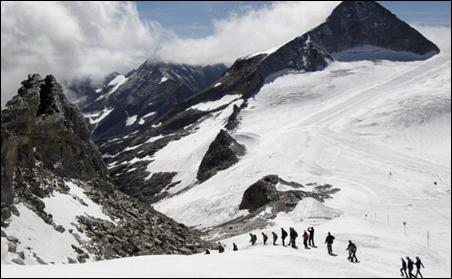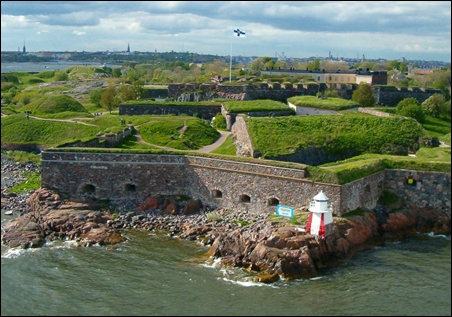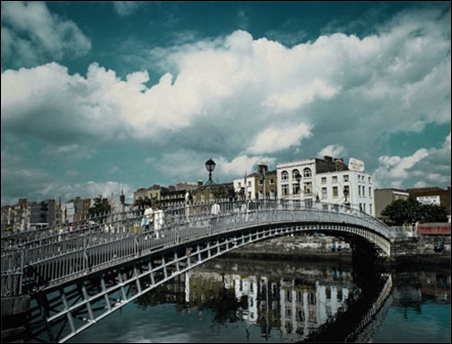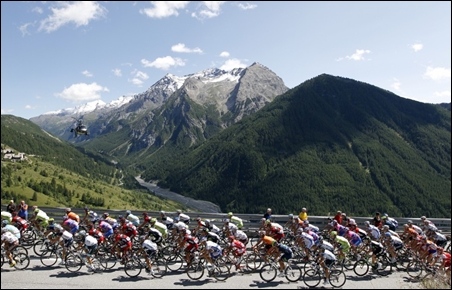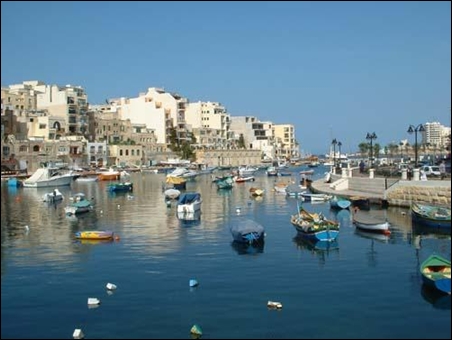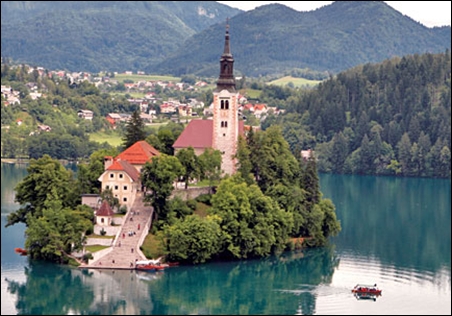 | « Back to article | Print this article |
The 15 Euro nations that face a downgrade
Citing increased systemic risk in the region, Standard & Poor's has placed the sovereign ratings of 15 euro zone nations, including AAA-rated Germany and France, under 'CreditWatch' implying the possibility of downgrade.
The move overshadowed the optimism over the Franco-German meeting that mulled ways to bolster the sagging economic conditions in the euro area -- a grouping of 17 countries that share the euro currency.
S&P has put 15 nations on 'CreditWatch' with negative implications, amid spiralling European debt turmoil that poses threat to the very existence of the currency union.
A mild recession is likely in first-half 2012 in the eurozone, ahead of a modest pick up in the second part of the year. The eurozone real GDP growth is expected to average at 0.4 per cent next year.
Take a look at the 15 crisis-hit Euro nations...
Austria
Credit Rating
AAA/Watch Neg/A-1+
From 1997 until 2011, Austria's average annual GDP growth was 2.04 percent hitting a high of 5 per cent in March 2000 and a record low of -5.70 per cent in June 2009.
Europe's darkening economic landscape reflects in the composite Purchasing Managers Index (PMI).
The PMI for the eurozone, an indicator of manufacturing trends, fell to 47.2 points in October from 49.9 points a month earlier, the biggest drop since July 2009.
Click NEXT to read more...
The 15 Euro nations that face a downgrade
Belgium
Credit Rating
AA/Watch Neg/A-1+
Belgium's average quarterly GDP growth was 0.58 percent from 1980 until 2011, reaching a high of 15.80 percent in March 1995 and a record low of -2.20 percent in December 2008.
In Standard & Poor's view, Europe's approaching recession first took hold in Spain, Portugal, and Greece, and the economic woes are now spilling over into the eurozone's core of France and Germany.
At the same time, new orders in eurozone manufacturing fell for the third month in a row, while export orders lost ground for the fifth consecutive month.
The contraction in activity has also spread to services, with the eurozone services PMI in October at its lowest since July 2009.
Click NEXT to read more...
The 15 Euro nations that face a downgrade
Finland
Credit Rating
AAA/Watch Neg/A-1+
Finland's average annual GDP growth was 2.45 per cent from 1976 until 2011, with a high growth of 7.6 per cent in September 1979 and a record low of -9.90 per cent in June 2009.
Tightening credit conditions, disagreements among European policy makers, high levels of government and household indebtedness, are among the reasons cited by S&P for keeping sovereign ratings on watch.
Click NEXT to read more...
The 15 Euro nations that face a downgrade
France
Credit Rating
AAA/Watch Neg/A-1+
From 1978 until 2011, France's average quarterly GDP growth was 0.48 per cent with a peak growth of 1.60 percent in June 1978 and a record low of -1.60 per cent in December 2008.
In revising the forecast for 2012, S&P has again cut the 2012 real GDP growth forecasts for France to 0.5 per cent from 0.8 per cent, Germany to 0.6 per cent from 1 per cent, and Italy to 0.1 per cent from 0.2 per cent.
The composite PMI for France and Germany dipped below the 50-point mark in October--a signal of recession--continuing the downtrend it started in September.
Click NEXT to read more...
The 15 Euro nations that face a downgrade
Germany
Credit Rating
AAA/Watch Neg/A-1+
From 1991 until 2011, Germany's average quarterly GDP growth was 0.31 per cent hitting a high of 2.10 per cent in June 2010 and a record low of -3.70 per cent in March 2009.
"CreditWatch placements are prompted by our belief that systemic stresses in the eurozone have risen in the recent weeks to the extent that they now put downward pressure on the credit standing of the euro zone as a whole," S&P Ratings Services said.
Click NEXT to read more...
The 15 Euro nations that face a downgrade
Luxembourg
Credit Rating
AAA/Watch Neg/A-1+
Luxembourg's average annual GDP growth from 1996 till 2011, was 4.14 per cent rising to a peak of 11.90 per cent in March 2000 and a record low of -7.30 per cent in June 2009.
"Currently, we expect output to decline next year in countries such as Spain, Portugal and Greece, but we now assign a 40 per cent probability of a fall in output for the euro zone as a whole," S&P noted.
Click NEXT to read more...
The 15 Euro nations that face a downgrade
The Netherlands
Credit Rating
AAA/Watch Neg/A-1+
The Netherlands' average annual GDP growth was 2.47 per cent from 1989 until 2011, hitting a high of 5.80 percent in December 1999 and a record low of -4.80 percent in June 2009.
Click NEXT to read more...
The 15 Euro nations that face a downgrade
Estonia
Credit Rating
AA-/Watch Neg/A-1+
From 1996 until 2011, Estonia's average annual GDP growth was 5.09 per cent reaching a peak of 13.10 percent in December 1997 and a record low of -16.60 per cent in June 2009.
Click NEXT to read more...
The 15 Euro nations that face a downgrade
Ireland
Credit Rating
BBB+/Watch Neg/A-2
Ireland's average annual GDP growth was 3.94 per cent from 1998 until 2011 reaching a high of 14.60 per cent in December 1999 and a record low of -8.30 per cent in March 2009.
Click NEXT to read more...
The 15 Euro nations that face a downgrade
Italy
Credit Rating
A/Watch Neg/A-1
From 1981 till 2011, Italy's average quarterly GDP growth was 0.35 percent hitting a high of 2.20 per cent in December 1983 and a record low of -3.00 per cent in March 2009.
Also, in October Italy's composite PMI recorded its sharpest monthly decline since 2009.
Click NEXT to read more...
The 15 Euro nations that face a downgrade
Malta
Credit Rating
A/Watch Neg/A-1
Estonia's average annual GDP growth was 5.09 per cent from 1996 until 2011, reaching a high of 13.10 per cent in December 1997 and a record low of -16.60 per cent in June 2009.
Click NEXT to read more...
The 15 Euro nations that face a downgrade
Portugal
Credit Rating
BBB-/Watch Neg/A-3
Portugal's average annual GDP growth was 1.81 per cent from 1996 until 2011, reaching an historical high of 5.50 per cent in December 1998 and a record low of -3.90 per cent in March 2009.
There is a rising risk of economic recession in the eurozone as a whole in 2012. Currently, S&P expects output to decline next year in countries such as Spain, Portugal and Greece.
It expects a 40 per cent probability of a fall in output for the eurozone as a whole.
Click NEXT to read more...
The 15 Euro nations that face a downgrade
Slovak Republic
Credit Rating
A+/Watch Neg/A-1
In 2010, Slovakia grew by 4 per cent, which was the highest growth among new EU member states. In 2011, the GDP growth slowed down to 3.3 per cent.
Click NEXT to read more...
The 15 Euro nations that face a downgrade
Slovenia
Credit Rating
AA-/Watch Neg/A-1+
The Gross Domestic Product (GDP) in Slovenia contracted 0.20 percent in the third quarter of 2011 over the previous quarter.
Slovenia's average quarterly GDP growth was 0.79 per cent from 1996 until 2011 hitting a high of 4.19 per cent in June 1999 and a record low of -6.04 per cent in March 2009.
Click NEXT to read more...
The 15 Euro nations that face a downgrade
Spain
Credit Rating
AA-/Watch Neg/A-1+
Spain's average quarterly GDP growth was 0.65 per cent from 1995 till 2011, hitting a high of 1.53 per cent in December 1997 and a record low of -1.60 per cent in March 2009.
Spain's economy is the fifth largest in Europe. Spain's current accounts have started to improve since 2007, mirroring a reduction in the country's trade deficit.
Foreign trade performance is crucial for the success of a country's overall debt reduction.
